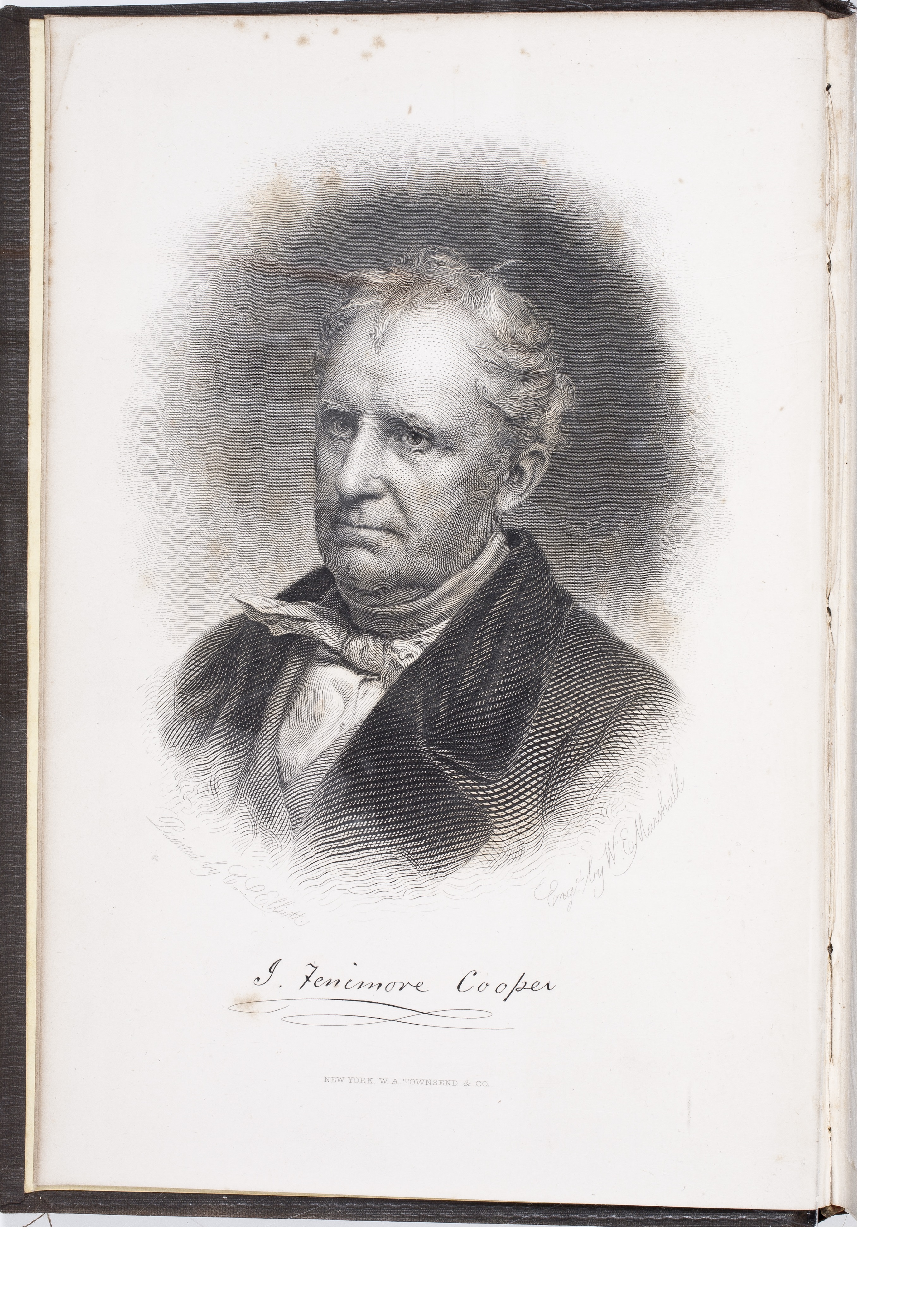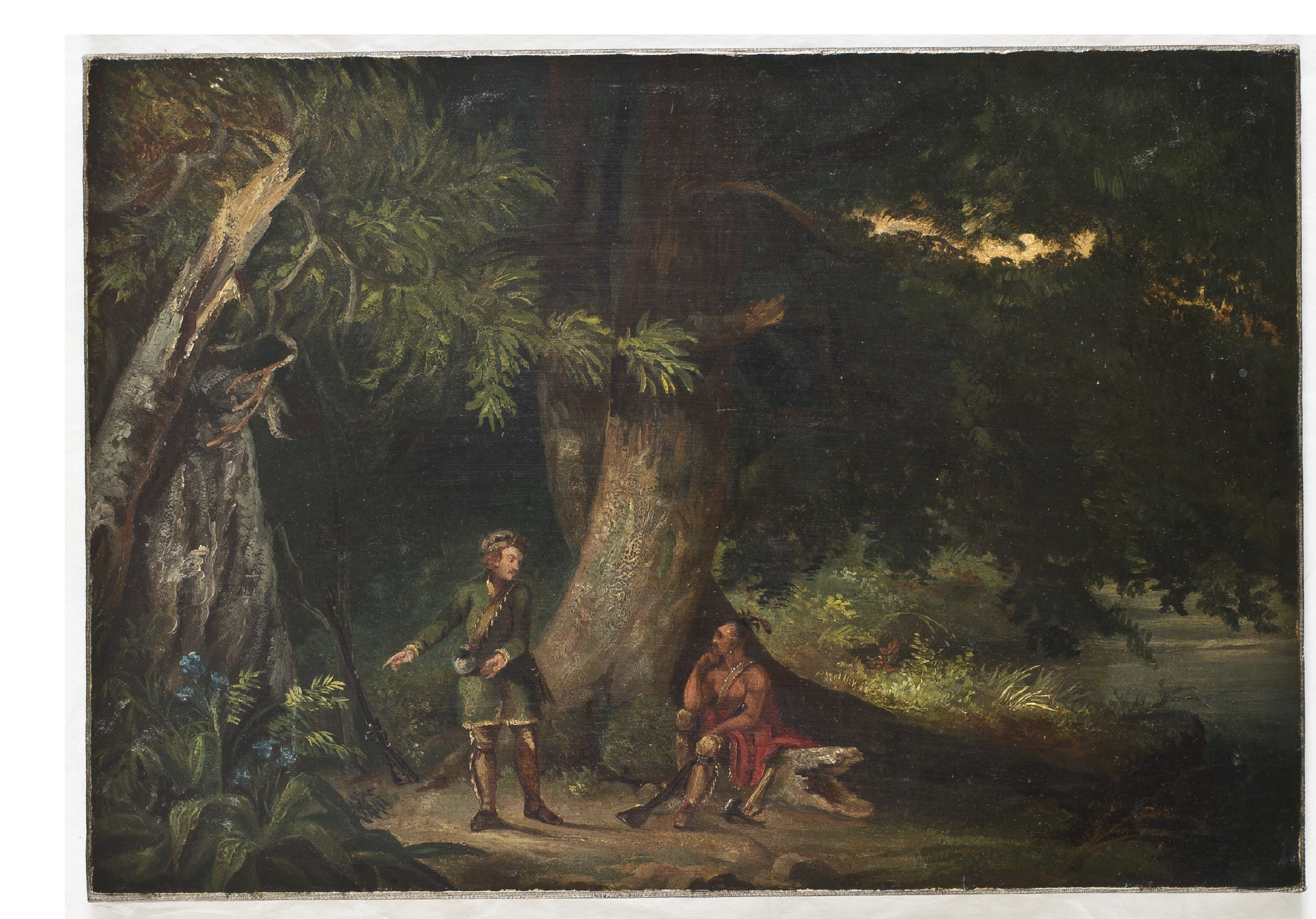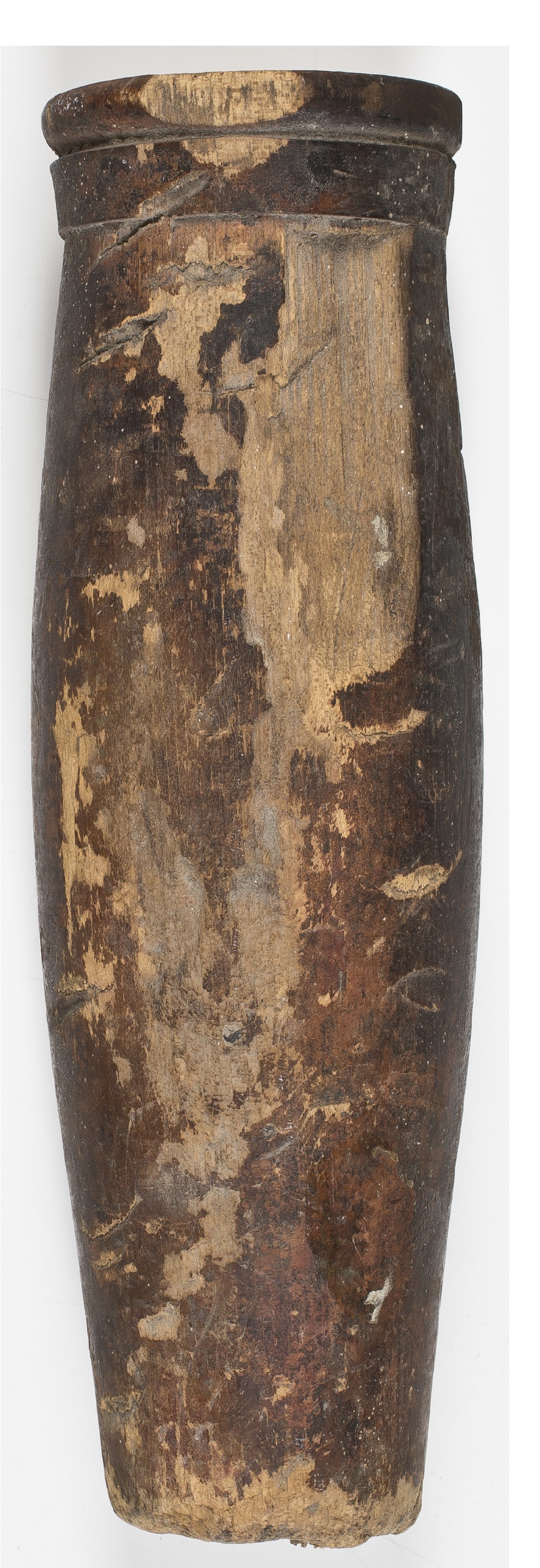Introduction

The American Antiquarian Society is a natural home for an online exhibition about James Fenimore Cooper's works. For many years the Society has supported The Writings of James Fenimore Cooper, an editorial project that bears the seal of the MLA Committee on Scholarly Editions. To support the work of the editors of the Writings, also known as the Cooper Edition, the Society has actively collected editions of Cooper's works printed in any language up to the year 1877.
The Society has a wide variety of Cooper items in the collection, including a portion of Cooper's personal papers, the personal library and papers of Cooper Edition editor James Beard, the account book of F.O.C Darley (who illustrated Cooper's works in the 1850s), proofs from Alfred Jones's engravings of Darley's illustrations, a copy of David Mamet's script for The Deerslayer, a painting portraying a scene in The Last of the Mohicans (below right), a piece of the bed on which Cooper died (below left), and, among many other resources, hundreds of books.
Many fellows and researchers have studied Cooper materials at the Society over the years. Pulitzer Prize winning historian Alan Taylor worked with Cooper’s papers for his book, William Cooper’s Town: Power and Persuasion on the Frontier of the Early American Republic. AAS member Wayne Franklin has already written half of a comprehensive biography of Cooper that is based partly on fellowship research at the Society. Recently fellow and Cooper Edition editor Matthew Sivils has given attention to Cooper's relationship to the natural world. Fellow Joseph Rezek has written about Cooper in his book on the transatlantic book trade. Local professors at Clark University and Worcester Polytechnic Institute, James Elliott and Lance Schachterle (also an AAS member), have worked closely with the Society's Cooper materials for the Cooper Edition for many years. Some of those individuals have contributed their reflections on their work on the Cooper Edition, which may be seen here.
In an early essay, Cooper wrote, "We love an interesting fiction, because, however paradoxical the assertion may appear, it addresses our love of truth—not the mere love of facts expressed by true names and dates, but the love of that higher truth, the truth of nature and of principles, which is a primitive law of the human mind...." Cooper may be known for his historical novels, his tales of the sea, of the West, and of Indians, and his non-fiction travel narratives, but his work calls us not only to the past but also to a place and time that exist eternally in the human consciousness.
To begin exploring this online exhibition simply click on any of the links in the navigation bar at the top of the screen. Three separate spaces feature the Society's collection of Cooper manuscript material, display American and foreign illustrations from Cooper's novels, and showcase some of the books used to produce the Cooper Edition. Please wander around each space as you wish, viewing galleries and bookcases and reading about the items exhibited there.
You may also want to check out recordings of the 2021 conference "Textual Editing and the Future of Scholarly Editions: A Conference on the Bicentennial of James Fenimore Cooper's The Spy."


